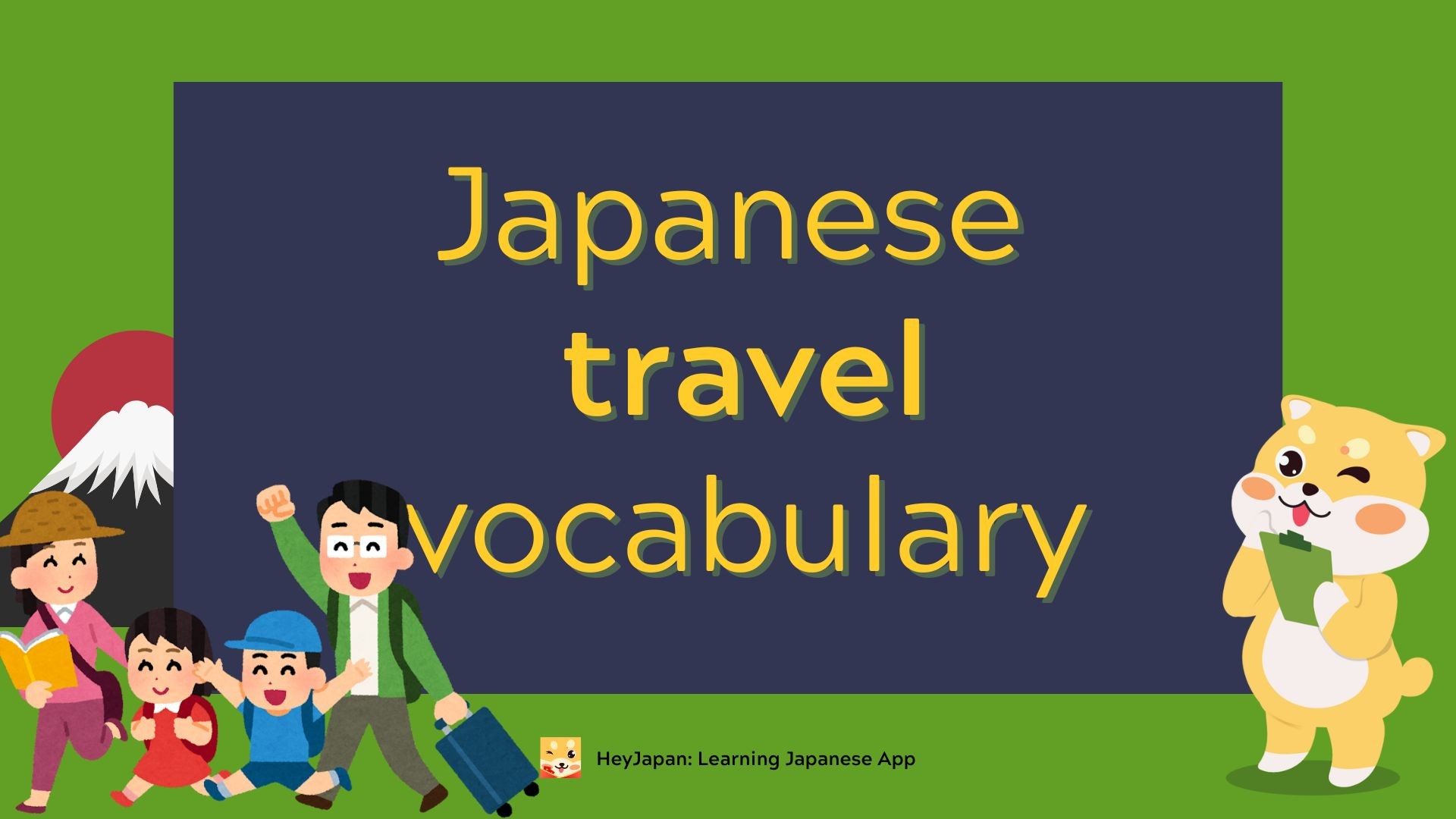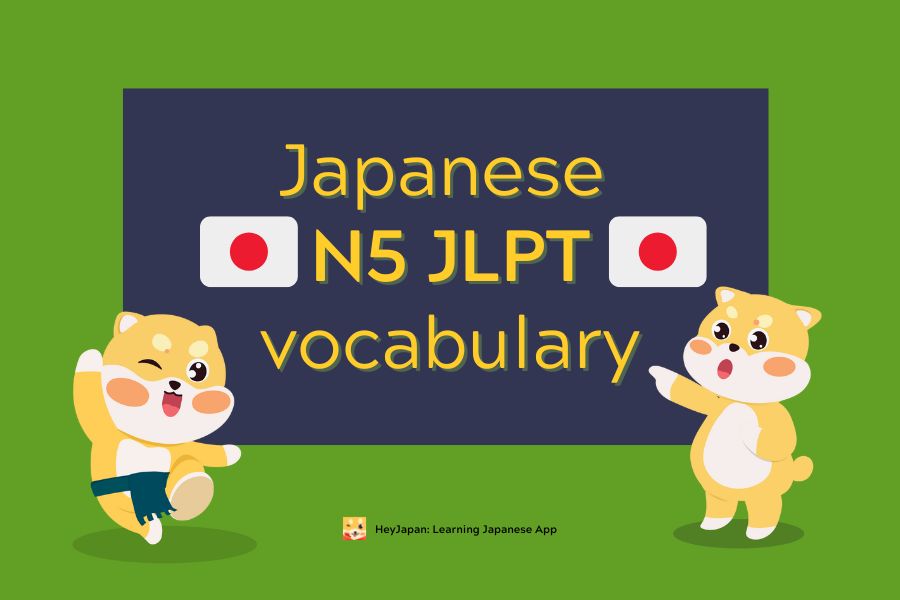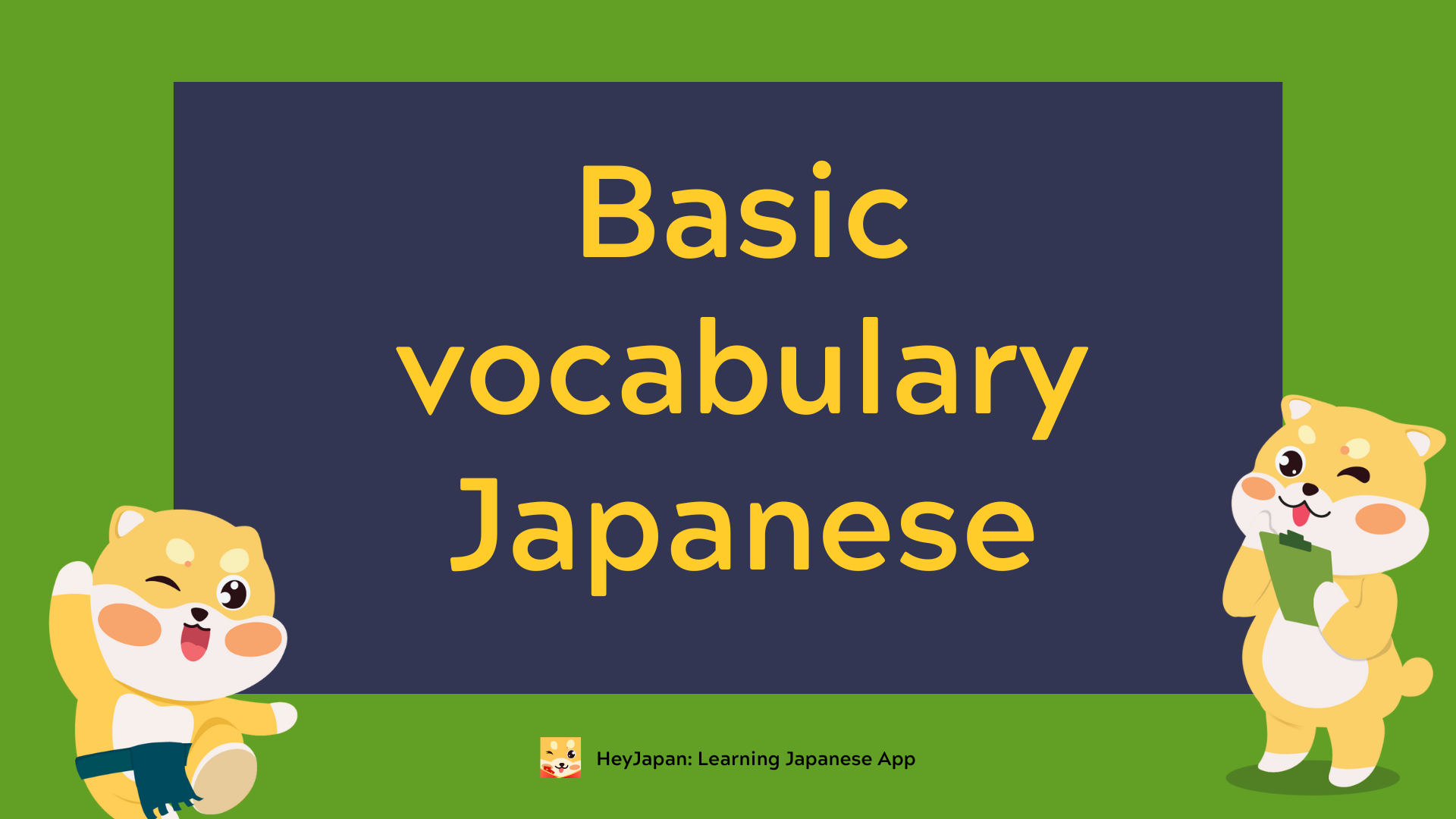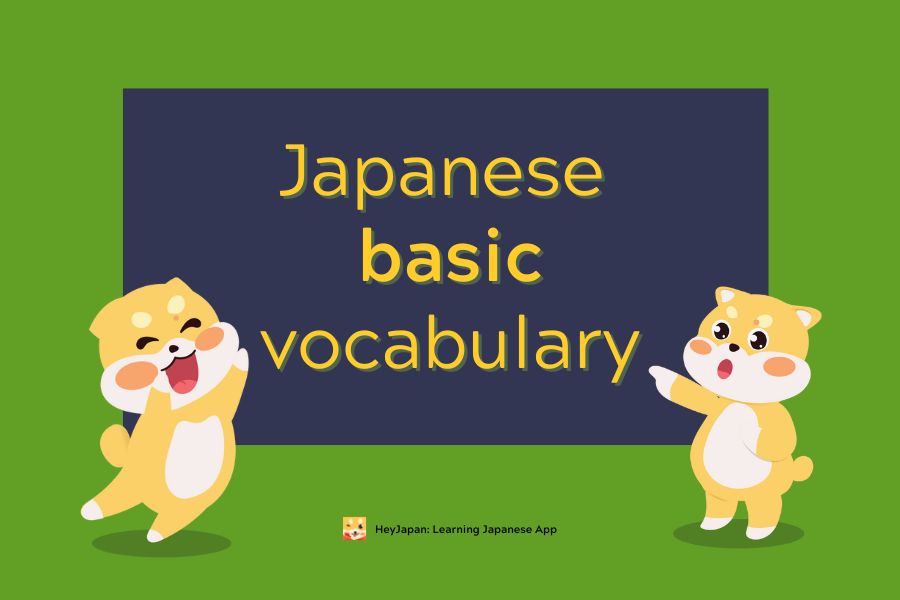Contents
- Directions & Getting Around
- At the Hotel
- Eating Out
- Shopping & Souvenirs
- Emergencies & Help
Planning a trip to Japan? Whether you're exploring the vibrant streets of Tokyo or soaking in the calm of Kyoto's temples, knowing a few key Japanese travel words can make your experience smoother, safer, and way more fun. Below is a simple guide to practical vocabulary and phrases grouped by real-life situations every traveler might face.
Directions & Getting Around

Vocabulary:
- 駅 (eki) — station
- バス停 (basutei) — bus stop
- 地図 (chizu) — map
- 出口 (deguchi) — exit
- 入口 (iriguchi) — entrance
- 近い (chikai) — near
- 遠い (tooi) — far
- 直進 (chokushin) — straight ahead
- 左 (hidari) — left
- 右 (migi) — right
Example Phrases:
- 駅はどこですか? (Eki wa doko desu ka?) — Where is the station?
- この地図を使えますか? (Kono chizu o tsukaemasu ka?) — Can I use this map?
- バス停はどこですか? (Basutei wa doko desu ka?) — Where is the bus stop?
- 出口はあちらですか? (Deguchi wa achira desu ka?) — Is the exit that way?
- まっすぐ行ってください。 (Massugu itte kudasai.) — Please go straight.
- ここは近いですか? (Koko wa chikai desu ka?) — Is this place nearby?
- 遠いですか? (Tooi desu ka?) — Is it far?
- 右に曲がってください。 (Migi ni magatte kudasai.) — Turn right, please.
- 左に行ってください。 (Hidari ni itte kudasai.) — Go left, please.
- どこで降りればいいですか? (Doko de orireba ii desu ka?) — Where should I get off?
>>>>>>>>>>>>>>>>>>Get some apps on your phone to travel to Japan easier : Click here for recommendation
At the Hotel
.jpg)
Vocabulary:
- 部屋 (heya) — room
- キー (kī) — key
- 予約 (yoyaku) — reservation
- 朝食 (chōshoku) — breakfast
- チェックイン (chekkuin) — check-in
- チェックアウト (chekkuauto) — check-out
- フロント (furonto) — front desk
- エレベーター (erebētā) — elevator
- 階段 (kaidan) — stairs
- Wi-Fi — Wi-Fi
Example Phrases:
- 予約があります。 (Yoyaku ga arimasu.) — I have a reservation.
- チェックインをお願いします。 (Chekkuin o onegaishimasu.) — I'd like to check in.
- 部屋のキーをください。 (Heya no kī o kudasai.) — Please give me the room key.
- 朝食は何時ですか? (Chōshoku wa nanji desu ka?) — What time is breakfast?
- チェックアウトは何時ですか? (Chekkuauto wa nanji desu ka?) — What time is check-out?
- Wi-Fiはありますか? (Wi-Fi wa arimasu ka?) — Do you have Wi-Fi?
- エレベーターはどこですか? (Erebētā wa doko desu ka?) — Where is the elevator?
- 階段は使えますか? (Kaidan wa tsukaemasu ka?) — Can I use the stairs?
- フロントは何階ですか? (Furonto wa nankai desu ka?) — What floor is the front desk?
- タオルをもらえますか? (Tauru o moraemasu ka?) — Can I get a towel?
Eating Out
.jpg)
Vocabulary:
- メニュー (menyū) — menu
- 水 (mizu) — water
- ご飯 (gohan) — rice/meal
- 美味しい (oishii) — delicious
- 肉 (niku) — meat
- 魚 (sakana) — fish
- 辛い (karai) — spicy
- 菜食主義 (saishoku shugisha) — vegetarian
- なし (nashi) — without
- お気に入り (okiniiri) — favorite
>>>>>>>>>>>>Learn more Japanese to communicate in restaurant at this guide
Phrases:
- おすすめは何ですか? (Osusume wa nan desu ka?) — What do you recommend?
- これをください。 (Kore o kudasai.) — I'll have this one, please.
- 肉なしにできますか? (Niku nashi ni dekimasu ka?) — Can you make it without meat?
- 水をください。 (Mizu o kudasai.) — Please give me water.
- ベジタリアンメニューはありますか? (Bejitarian menyū wa arimasu ka?) — Do you have a vegetarian menu?
- 辛い料理はありますか? (Karai ryōri wa arimasu ka?) — Do you have spicy food?
- これが私のお気に入りです。 (Kore ga watashi no okiniiri desu.) — This is my favorite.
- デザートはありますか? (Dezāto wa arimasu ka?) — Do you have dessert?
- 英語のメニューはありますか? (Eigo no menyū wa arimasu ka?) — Do you have an English menu?
- お箸をください。 (Ohashi o kudasai.) — Please give me chopsticks.
Shopping & Souvenirs
Vocabulary:
- 値段 (nedan) — price
- お土産 (omiyage) — souvenir
- サイズ (saizu) — size
- 現金 (genkin) — cash
- クレジットカード — credit card
- 試着 (shichaku) — try on
- 店員 (ten’in) — shop clerk
- 割引 (waribiki) — discount
- レシート (reshīto) — receipt
- セール — sale
Phrases:
- これはいくらですか? (Kore wa ikura desu ka?) — How much is this?
- 試着できますか? (Shichaku dekimasu ka?) — Can I try it on?
- 他のサイズはありますか? (Hoka no saizu wa arimasu ka?) — Do you have another size?
- 割引はありますか? (Waribiki wa arimasu ka?) — Is there a discount?
- クレジットカードは使えますか? (Kurejitto kādo wa tsukaemasu ka?) — Can I use a credit card?
- レシートをください。 (Reshīto o kudasai.) — Please give me the receipt.
- お土産を探しています。 (Omiyage o sagashiteimasu.) — I'm looking for souvenirs.
- 店員さん、手伝ってくれますか? (Ten’in-san, tetsudatte kuremasu ka?) — Excuse me, can you help me?
- 現金で払えますか? (Genkin de haraemasu ka?) — Can I pay in cash?
- これはセール中ですか? (Kore wa sēru-chū desu ka?) — Is this on sale?
Emergencies & Help
.jpg)
Vocabulary:
- 助けて (tasukete) — help
- 病院 (byōin) — hospital
- 警察 (keisatsu) — police
- 怪我 (kega) — injury
- 薬 (kusuri) — medicine
- 火事 (kaji) — fire
- 気分が悪い (kibun ga warui) — feel sick
- 紛失 (funshitsu) — lost item
- 道に迷った (michi ni mayotta) — lost (direction)
- 通訳 (tsūyaku) — interpreter
Example Phrases:
- 助けてください! (Tasukete kudasai!) — Help me!
- 病院へ行きたいです。 (Byōin e ikitai desu.) — I want to go to a hospital.
- 警察を呼んでください。 (Keisatsu o yonde kudasai.) — Please call the police.
- 気分が悪いです。 (Kibun ga warui desu.) — I feel sick.
- 薬をください。 (Kusuri o kudasai.) — Please give me medicine.
- 道に迷いました。 (Michi ni mayoimashita.) — I'm lost.
- 通訳が必要です。 (Tsūyaku ga hitsuyō desu.) — I need an interpreter.
- 火事です! (Kaji desu!) — There's a fire!
- 怪我をしました。 (Kega o shimashita.) — I got injured.
- 財布をなくしました。 (Saifu o nakushimashita.) — I lost my wallet.
>>>>>>>>>>>>>>>>>>>>Read this if you want to dive in Japanese culture









